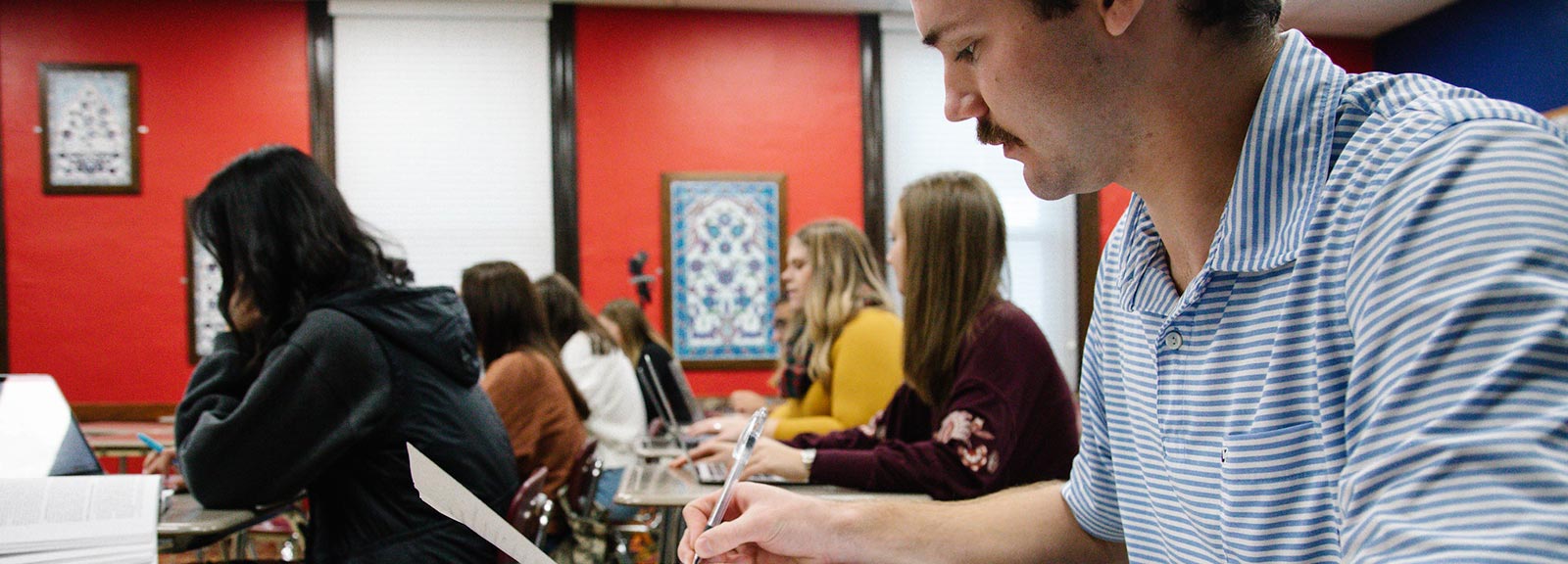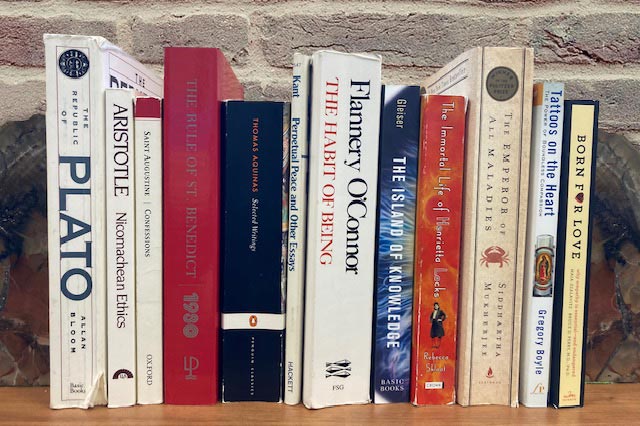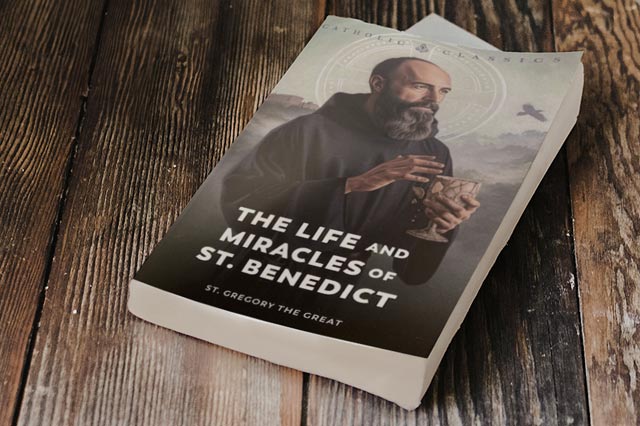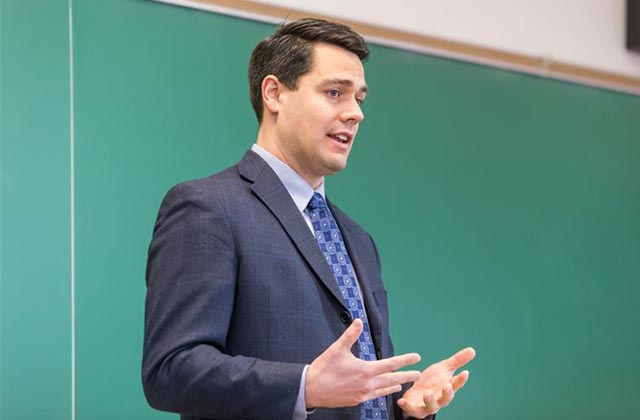Theological Foundations
Critically articulate the theological foundations of the Catholic Benedictine tradition.

Cultivating the Virtues of Catholic, Benedictine, and Liberal Education at Saint Vincent College
Every person deserves the opportunity to be more than a link in the chain of production while recognizing the necessity and dignity of productive work. This isn’t something that can be accomplished in a four-year education alone; but that education can prepare you for a lifelong task of understanding and fulfilling the broader purposes of life.
The Saint Vincent Core Curriculum introduces you to the ways that the Catholic Benedictine tradition is very much a guide to intentionally living a purposeful, enriched life. A liberal arts education, underscored by our Core Curriculum will help you articulate your ideas, guide you as you seek the good, and encourage you to reflect on how your gifts support and enhance the world around you.
Core Student Learning
The goal of a Catholic education is not to tell students what to do or how to do it; rather, it is to help students understand themselves and their relationship to their friends, neighbors, creation, and the Divine. The Core Curriculum achieves this goal by focusing student learning within six key areas.
Critically articulate the theological foundations of the Catholic Benedictine tradition.
Gain an informed understanding of your historical, cultural, and political location within a global context.
Practice methods appropriate to the arts and sciences to question, investigate, and reason.
Develop an integrated perspective on liberal education and its relationship to your disciplinary concentration.
Express yourself effectively and charitably as both a writer and speaker as well as through the visual arts.
Rationally defend ethical commitments for the service of self, neighbors, and creation.
Listening Seminar (3 credits)
Theology
Philosophy
Mathematics
Literature
History
American Government
Language
Natural Science
Social Science
Core Writing
Theological Foundations
History, Culture, Politics
Methods and Investigation
Art, Music, Creative Writing
Ethical Reasoning
The Core Capstone Seminar is designed to bring together the various strands of knowledge students have picked up in the Core and their majors in order to think about the unity of truth and how to live a fulfilling life that includes a successful career, the love of learning, and the love of one's neighbors. The course combines primary texts, Socratic discussion, and service to the community.
In the Saint Vincent Core Curriculum, you’ll find yourself reading and engaging with some of history’s greatest works. Here are a few titles you may encounter:

The Book of Exodus from the Old Testament
One of the Gospels
Saint Augustine’s Confessions
The Rule of Saint Benedict
Parts of Thomas Aquinas’s Summa Theologiae
Saint John Paul II’s Fides et Ratio
Francis Bacon’s The New Atlantis
G.K. Chesterton’s “The Blue Cross”
The Allegory of the Cave from Plato’s Republic
Aristotle’s Nicomachean Ethics
Willa Cather’s “Two Friends”
Dorothy Sayers’s “The Lost Tools of Learning”
And much more!

Saint Vincent students may earn the designation “Scholar of the Liberal Arts” by successfully completing all core requirements as outlined above, completing at least one elective in each of the following disciplines: theology, philosophy, history, politics, literature, and math or natural science, and demonstrating proficiency in a foreign language at the intermediate level as determined by foreign language faculty. Students are encouraged to use these courses in pursuit of interdisciplinary minors.

"My experience with Saint Vincent’s Core Curriculum was beneficial in helping me to create a holistic approach to problem-solving in the modern world. Because of the foundation the Core developed in me, I have been able to see how different concepts connect and intertwine with each other in my work, personal life, and faith."
Class of 2024
Biological Technician

"The Core at SVC afforded me remarkable breadth and depth of knowledge that has proven invaluable in my legal career and life in general. I’m blessed to have attended Saint Vincent.”
Class of 2018
Judicial Law Clerk to the Honorable Kim R. Gibson

"The new Core Curriculum has cultivated classrooms where different majors come together with the shared goal of discovering truth. The rich diversity of knowledge within these environments has no doubt expanded my knowledge beyond my own major and shaped me into a well-rounded student and employee."
Class of 2025
Double major in Communication & Graphic Design
Benedictine Leadership Studies Scholar
For more information about the Saint Vincent Core Curriculum, please contact:

Professor of Political Science Director of Core
724-805-2652
jerome.foss@stvincent.edu
core.director@stvincent.edu